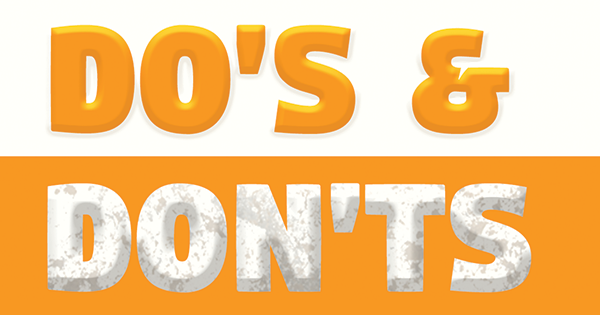Do's and Don'ts for Landing an Internship
If you’re looking for an internship but aren’t sure where to start, consider these tips before you begin.

Whether you’re just starting to search for jobs or need some help tweaking your resume, there are many pieces to consider. Landing an internship starts with getting your future employers to be interested in your unique set of skills, as well as your compatibility with the company. Moody College of Communications offers an array of services, such as their exclusive job bank and career advising to help you jumpstart your career.
Creating or Tweaking Your Resume
Do’s: Be sure to keep your resume up-to-date with relevant information about your career goals. This means including job experiences, school-related activities, leadership positions, technical skills, study abroad opportunities, or anything that you feel makes you distinguishable from other people. Make sure your resume is one page and has a simple, clean format to help employers get an idea of who you are. Remember, your resume is the first step to landing an internship so it’s important to make a great first impression.
Don’ts: Adding irrelevant information is an absolute no-no when sending your resume to future employers. Including hobbies or any personal information occupies valuable space in your resume, so be sure to only include what’s important.
Killing the Cover Letter
Do’s: Your cover letter is meant to give your resume a voice. This is where hiring managers and employers want to know why you are interested in their organization, what skills you can bring to the table, and why you would be a great fit for them. It’s also important to make your cover letter seem as genuine as possible, so be sure to highlight unique traits about the position you’re applying for, or why you are interested in that organization specifically. Similar to your resume, only add what is necessary.
Don’ts: Most hiring managers will agree that a generic cover letter is one of the biggest mistakes made by job applicants. If your cover letter looks like it has been copy and pasted, it is likely that hiring managers will toss it to the side. Don’t add anything irrelevant, and most importantly, check your cover letter for simple grammatical errors!
Having a Successful Interview
Do’s: The phrase “practice makes perfect” could not be more applicable to learning how to interview. Practice interviewing with friends who have gone through the process, conduct mock interviews with help from your professors or career-oriented organization. Learn how to talk about yourself and connect your past experiences with the position you’re applying for. Lastly, it’s equally as important for you to have questions for your interviewer. Ask questions about the company culture, how your interviewer landed their current job, or anything you feel is important to know about a job.
Don’ts: While it is important to make a great impression when being interviewed, it isn’t okay to treat the interview casually. Be prepared for your interview by doing a bit of research on the organization you plan to work for. Lastly, don’t make inappropriate jokes or ask anything about the interviewer’s personal life during the interview. There’s a difference in asking how someone manages their work-life balance and being intrusive.
Following Up after the Interview
Do’s: Follow up with your interview by sending an email or thank-you card within twenty-four hours to the hiring manager or person who interviewed you. If you forgot to mention anything during your interview, a follow-up is a great second chance to remind your employer why you’re qualified.
Don’ts: If you send a follow-up email to your interviewer or hiring manager and they don’t respond, don’t pester them by sending more emails. If something went wrong during the interview, don’t draw attention to it in your follow-up. Highlight the positive qualities about yourself and move on. Lastly, don’t make exaggerated statements in your follow-up. If you mention how “perfect” you are for the job, there’s a chance that you might not get it.
Accepting/Rejecting Your Offer
Do’s: If you receive an offer from your interviewer, be sure to thank them for providing you with the opportunity to work for them. Showing your gratitude is important in building and maintaining networking relationships. Be transparent with your interviewer, and tell them you may need an extension on your offer if you are still evaluating other options.
Don’ts: If you receive an offer but feel unsure about it, don’t accept on a whim. Take some time to evaluate whether or not you want to work for that organization. Remember, your time is just as valuable as the organization that interviewed you. Lastly, if you receive a better offer elsewhere, make sure you kindly reject the organizations that offered you a position rather than ignoring them.
Whether you’re just starting to search for jobs or need some help tweaking your resume, there are many pieces to consider. Landing an internship starts with getting your future employers to be interested in your unique set of skills, as well as your compatibility with the company. Moody College of Communications offers an array of services, such as their exclusive job bank and career advising to help you jumpstart your career.

